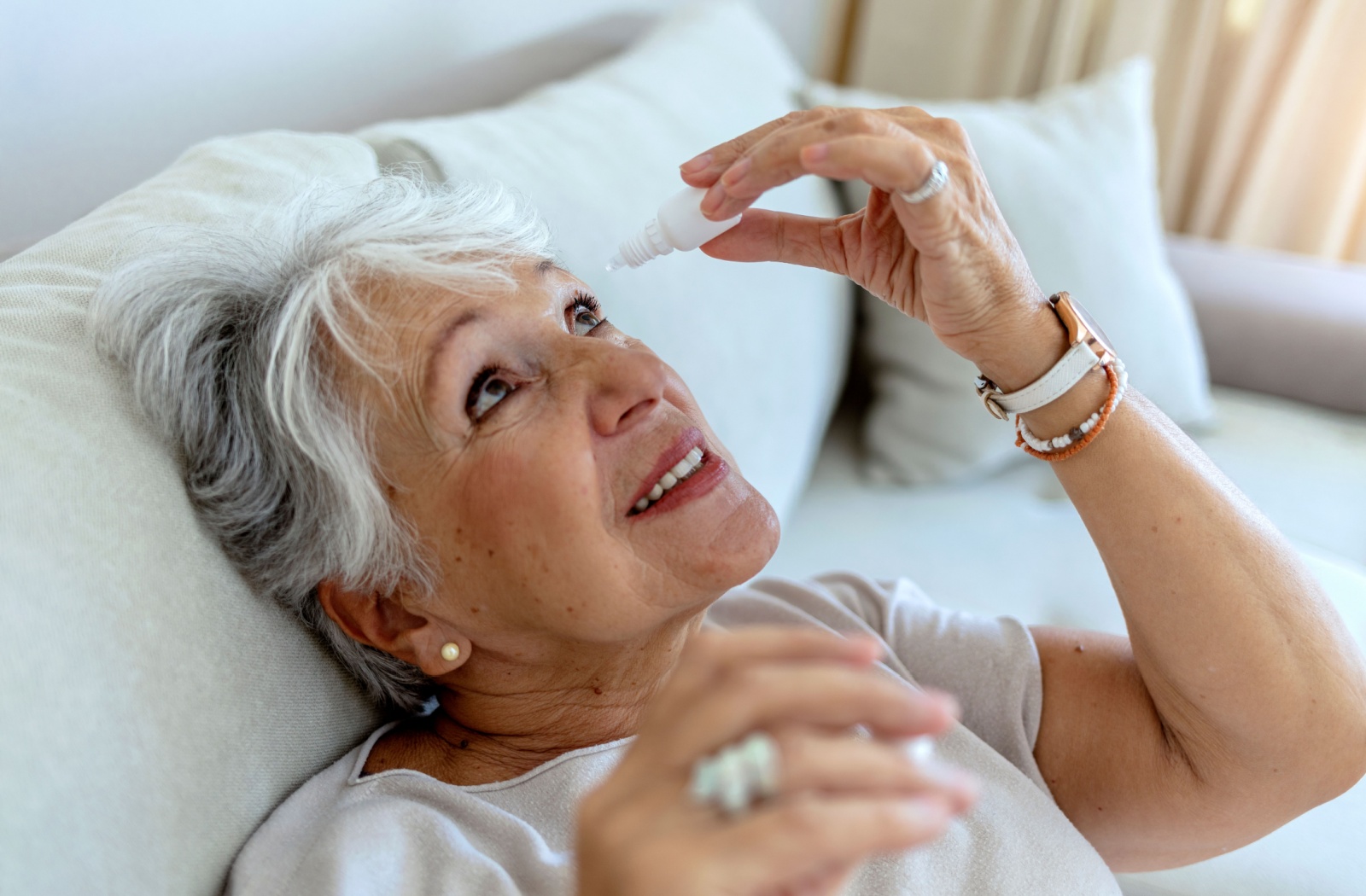Eye drops are a common remedy for various eye conditions, from dryness to allergies. But can you use eye drops before bed? The short answer is yes, but it depends on the type of eye drops and your specific needs. Let’s explore the different scenarios where using eye drops at night can be beneficial or problematic.
Benefits of Using Eye Drops Before Bed
1. Alleviating Dry Eyes
Many people suffer from dry eyes, especially those who spend long hours in front of screens or live in dry climates. This condition can cause significant discomfort, including irritation, redness, and a gritty feeling. Using lubricating eye drops before bed can help keep your eyes hydrated throughout the night, reducing discomfort and promoting better sleep. Additionally, these drops can create a protective barrier on the surface of the eyes, preventing further moisture loss and ensuring you wake up with refreshed, comfortable eyes.
2. Managing Allergies
If you suffer from eye allergies, nighttime can be particularly challenging. Allergens like dust mites, pet dander, and pollen can accumulate in your bedroom, aggravating your symptoms. Using antihistamine eye drops before bed can help alleviate symptoms like itching, redness, and swelling, allowing you to sleep more comfortably. Additionally, keeping your bedroom clean, using allergen-proof bedding, and maintaining a regular cleaning schedule can further reduce nighttime allergy flare-ups.
3. Treating Eye Infections
For those dealing with eye infections, medicated eye drops prescribed by a doctor can be crucial for effective treatment. These drops often contain antibiotics or anti-inflammatory agents designed to combat the infection and reduce symptoms such as redness, itching, and swelling. They usually need to be administered at regular intervals, often multiple times a day, including before bed, to maintain consistent medication levels and ensure the infection is fully eradicated. Additionally, it’s important to follow the prescribed dosage and duration to prevent the infection from returning or worsening. Always consult with your healthcare provider if you have any questions or concerns about your treatment plan.
Types of Eye Drops and Their Uses
1. Lubricating Eye Drops
Also known as artificial tears, these are safe to use before bed. They help to keep your eyes moist and can be particularly useful for people with chronic dry eye syndrome. Regular use can provide relief from irritation and discomfort caused by dryness, especially in air-conditioned or heated environments.
2. Antihistamine Eye Drops
These are designed to relieve allergy symptoms and are generally safe to use at night. They help alleviate itching, redness, and swelling caused by allergens such as pollen, dust, or pet dander. However, make sure to follow the recommended dosage to avoid overuse, which can lead to increased irritation or decreased effectiveness over time.
3. Medicated Eye Drops
These are prescribed for specific conditions like infections, glaucoma, or inflammation. It’s essential to follow your doctor’s instructions regarding their use, including whether they should be applied before bed. Consistent and correct usage of medicated eye drops can prevent the progression of eye diseases and ensure the effectiveness of the treatment.
4. Whitening Eye Drops
These drops are used to reduce redness but are not recommended for bedtime use. They work by constricting blood vessels in the eye to lessen the appearance of redness. However, they can cause rebound redness, making your eyes appear even redder over time if used frequently. It’s best to use them sparingly and consult a doctor for persistent redness.

How to Apply Eye Drops Correctly
Using eye drops might seem straightforward, but proper application ensures maximum effectiveness and comfort. Here are some steps to follow:
- Wash Your Hands: Always start with clean hands to avoid introducing bacteria into your eyes.
- Tilt Your Head Back: Look upward and pull down your lower eyelid to create a small pocket.
- Apply the Drops: Hold the dropper above your eye and squeeze out the recommended number of drops.
- Close Your Eyes: Gently close your eyes for a minute to allow the drops to spread evenly.
- Blot Excess: Use a clean tissue to blot any excess liquid around your eyes.
Precautions and Considerations
Before incorporating eye drops into your nighttime routine, consider the following:
1. Consult Your Doctor
Always consult with a healthcare professional before starting any new eye treatment, especially if you have underlying conditions or are already using other medications.
2. Follow the Instructions
Adhere to the usage guidelines provided by the manufacturer or your doctor. Overuse can lead to complications.
3. Be Aware of Side Effects
Keep an eye out for potential side effects such as increased redness, irritation, or blurred vision. If you experience any adverse reactions, discontinue use and consult your doctor.
4. Storage
Store your eye drops as directed, usually in a cool, dry place. Some medicated drops may require refrigeration.
The Path Towards Vision Care
Using eye drops before bed can be beneficial for addressing various eye issues, from dryness to allergies. However, it’s crucial to use the right type of drops and follow proper application techniques to ensure safety and effectiveness. If you’re unsure about which eye drops to use, consult your healthcare provider for personalized advice.
For more tips on eye care and health, subscribe to our newsletter or book a consultation with our eye specialists today.



